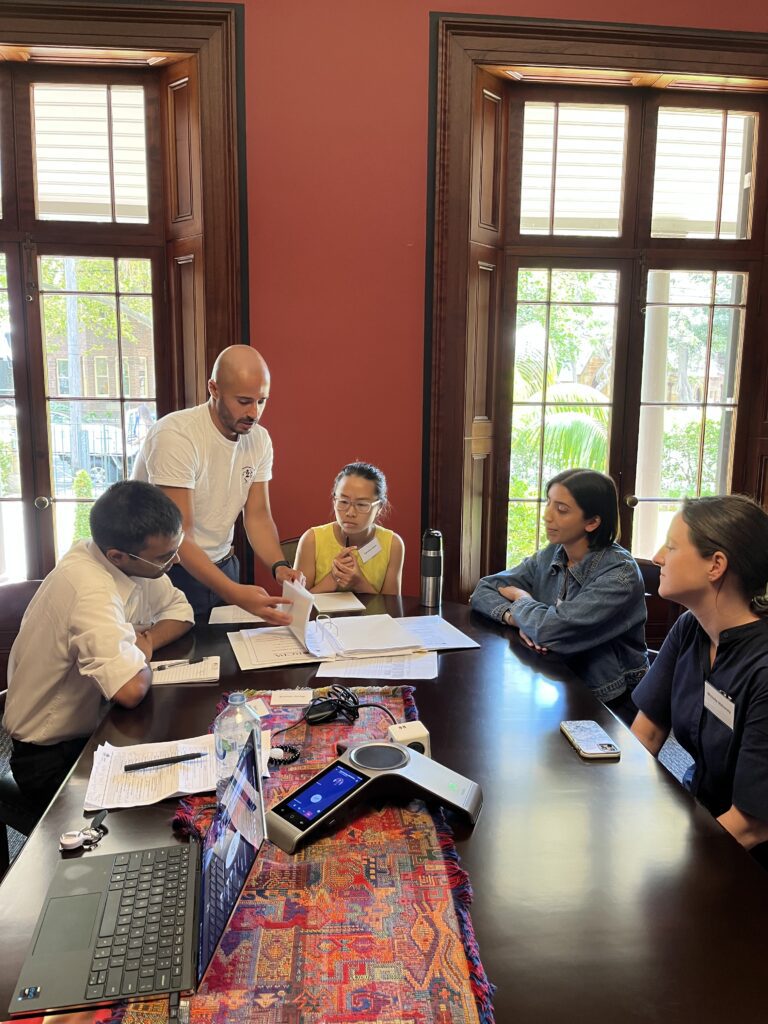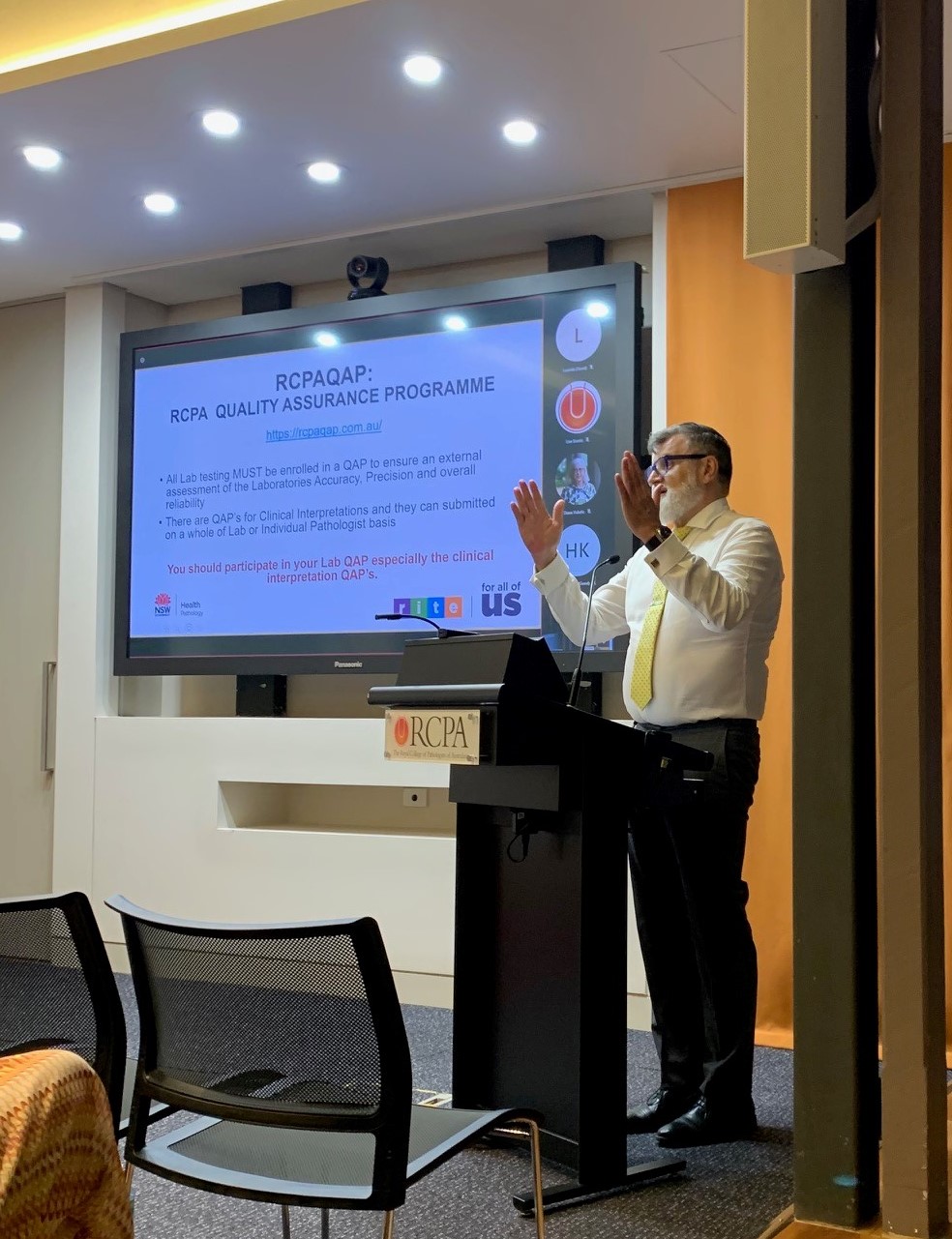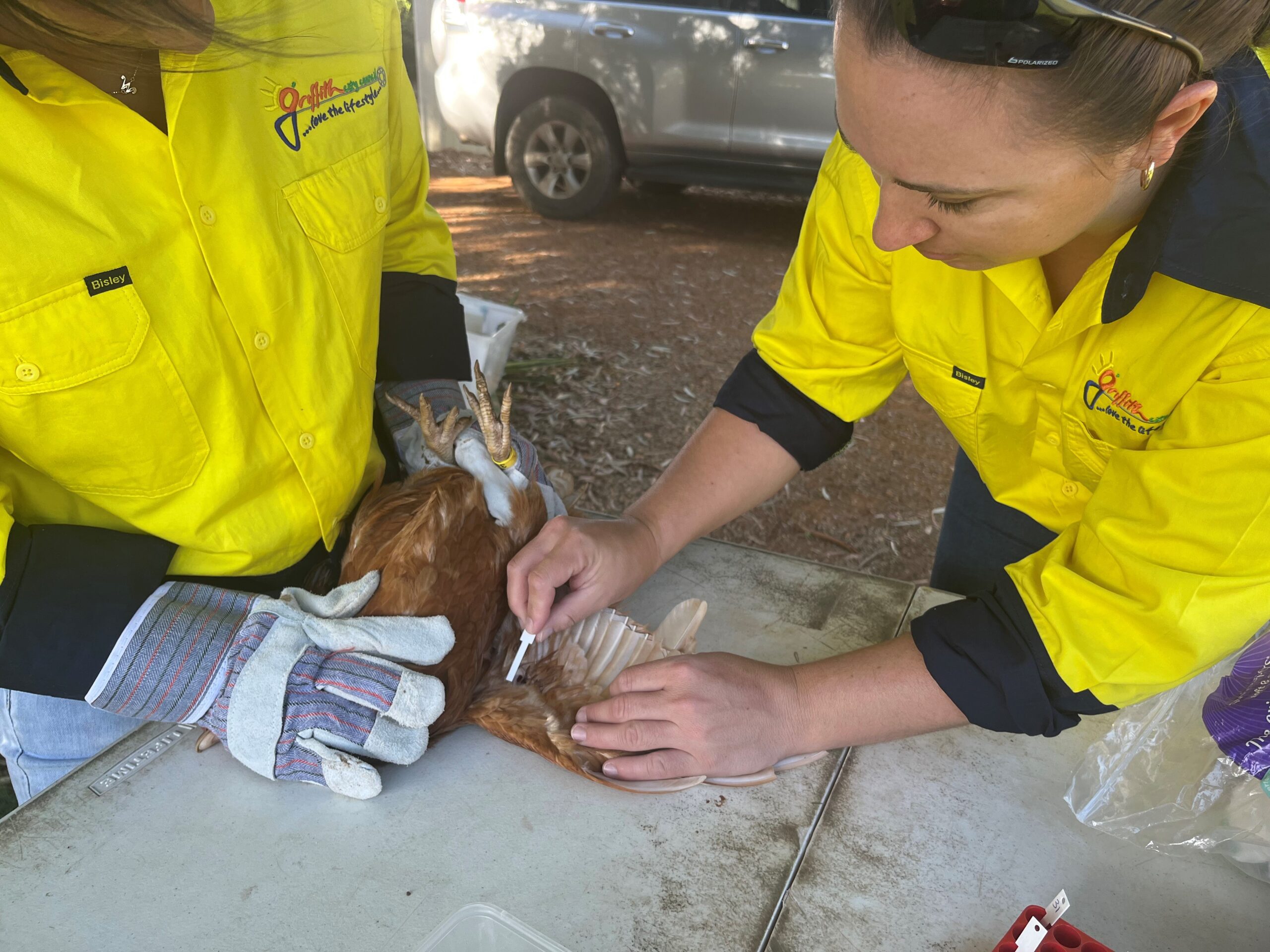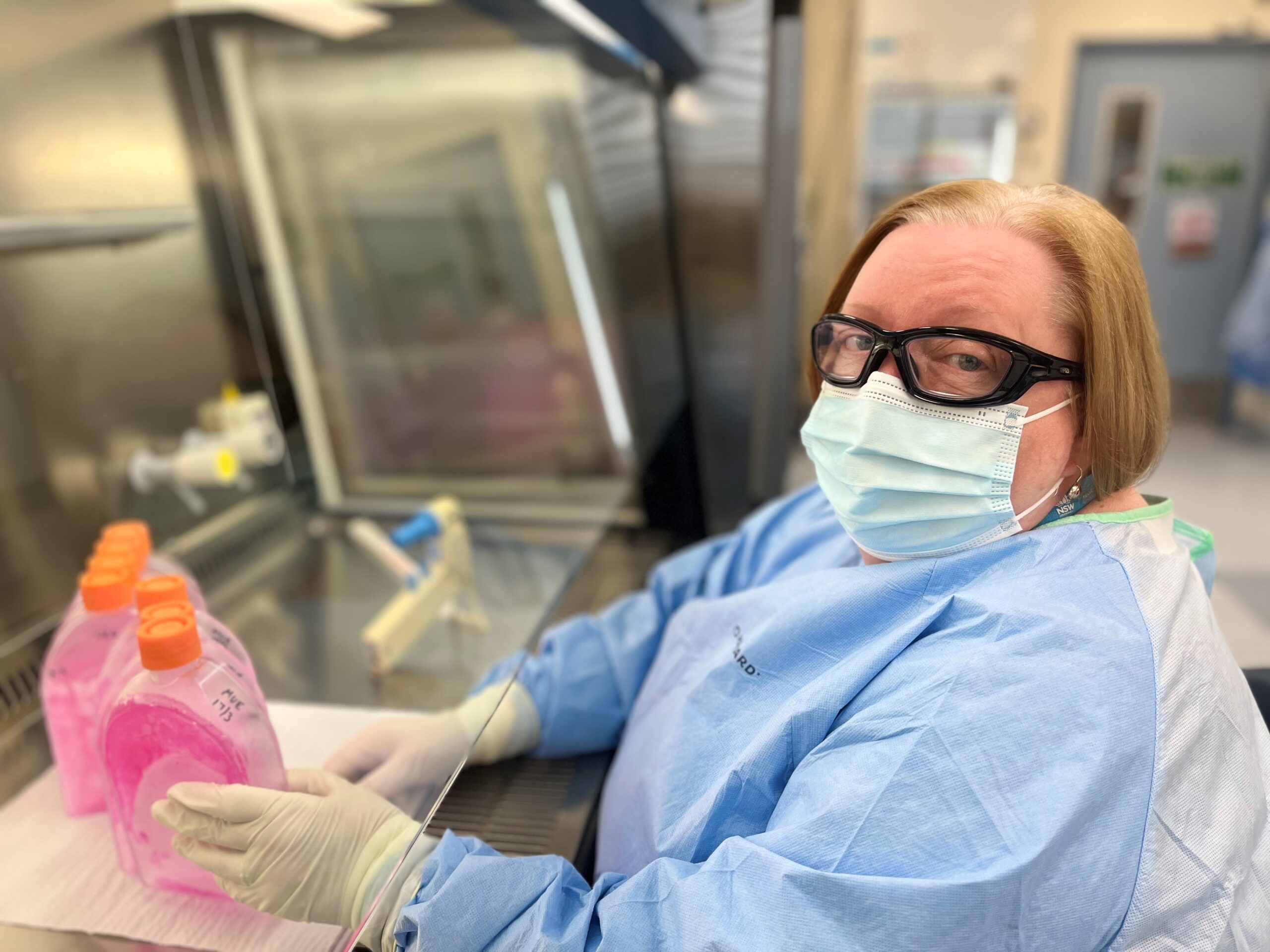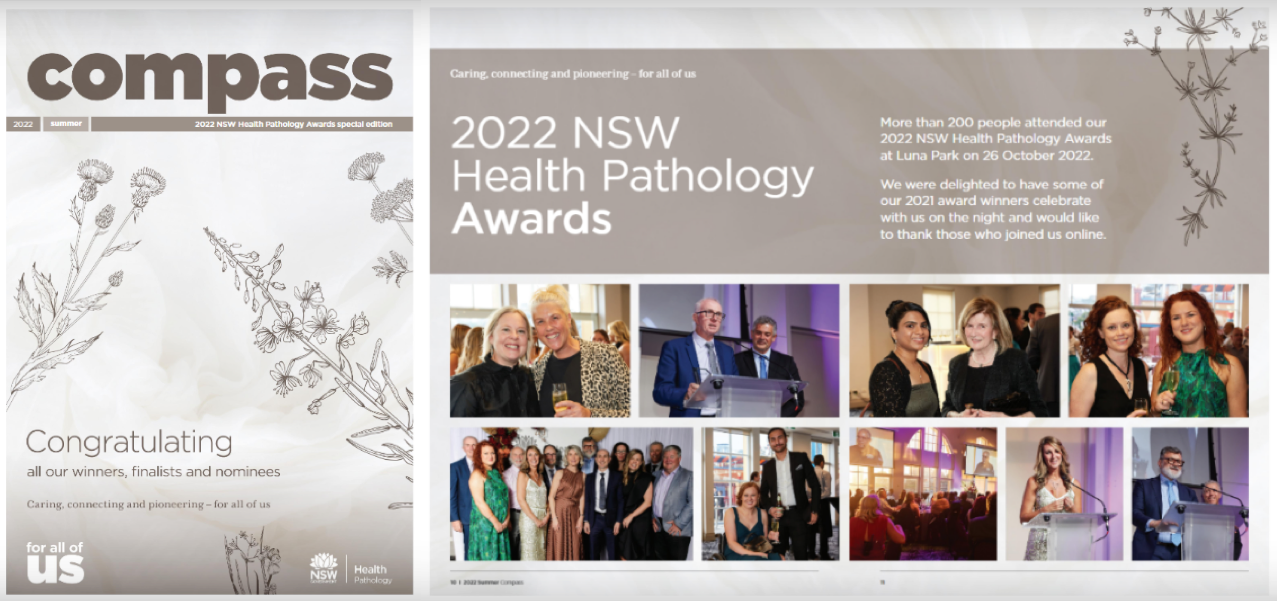NSW Heath Pathology is pleased to welcome 31 new Junior Medical Officers starting their pathology traineeships with us in the 2023 Clinical year.
Pathology trainees are the future of our medical workforce and a crucial part of our organisation.
There is a shortage of specialist pathologists internationally and across Australia and we are working with NSW Health and the Royal College of Pathologists of Australasia (RCPA) to recruit, train and retain the next generation in all disciplines.
Of our new recruits: 25 will train in Anatomical Pathology; 5 in Microbiology; and 1 in Forensic Medicine.
They’ll rotate through our metropolitan laboratories as well as some of our regional labs in Orange, Wagga Wagga and Tamworth, and our Forensic Medicine Lidcombe facility. This year, we were also pleased to secure funding for a second trainee position at Nepean.
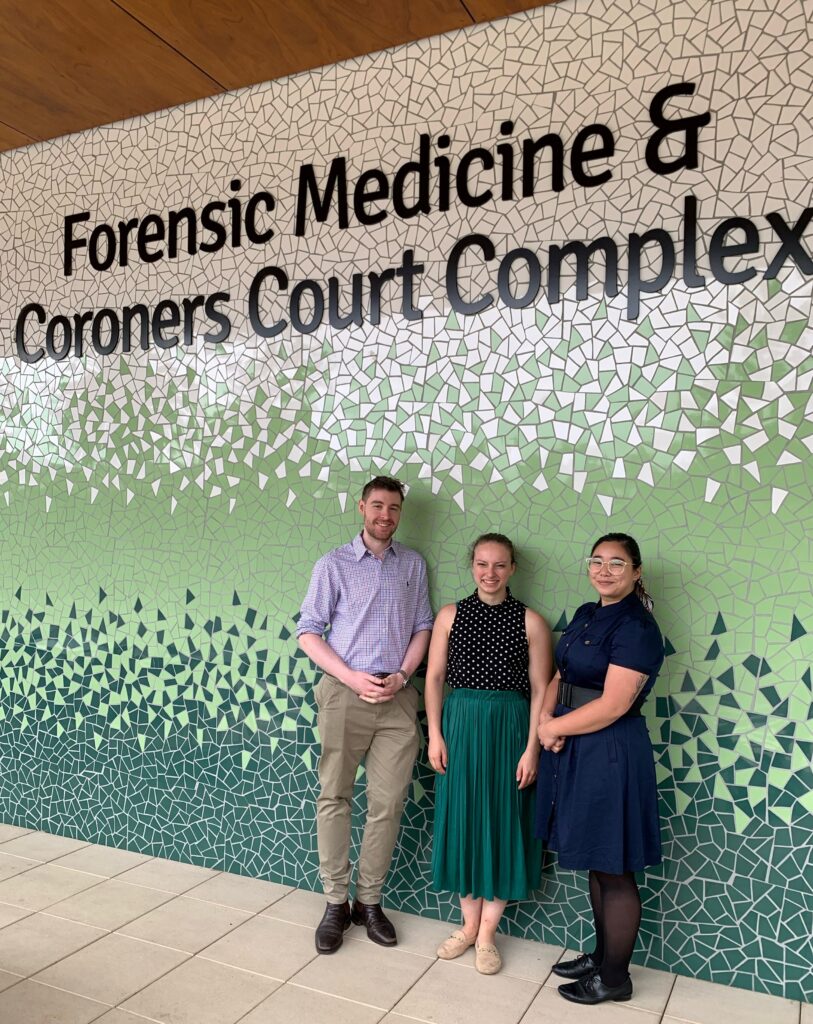
Three of our new pathology trainees on an orientation visit to our Forensic Medicine
service at Lidcombe.The trainees will learn how to navigate the exhilarating and challenging world of diagnostic pathology and contribute to ongoing exploration and categorisation of human diseases.
On 8 and 9 February 2023 they attended orientation at the RCPA, a private pathology laboratory and the NSW Ministry of Health. The events were an opportunity to build friendships and support networks that will be needed in the tough but rewarding years ahead.
The NSW Pathology Training Program, run by NSW Health Pathology, the RCPA and NSW Ministry of Health, is one of the most rigorous in Australia. It takes 5 years to qualify for RCPA fellowship, with a strong emphasis on academic and practical learning.
NSW Health Pathology employs approximately 120 junior doctors each year in trainee/registrar positions across NSW, mostly in Anatomical Pathology.
We recently added Resident Medical Officer (RMO) positions to allow junior doctors to have a 12-week experience in Anatomical Pathology before they commit to a career via the Annual Medical Recruitment process.

